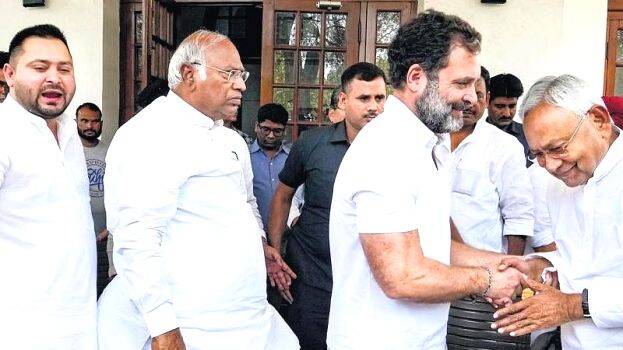

The joint conference of fifteen opposition parties held in Patna, the capital of Bihar, can be considered as a wake-up call for the Lok Sabha elections to be held early next year. The aim is to build a strong opposition against Prime Minister Narendra Modi and the BJP. It is impossible to tell how far the union will go. Each party is characterized by very different views and policy approaches. There are certain limitations that may arise when approaching the people with the sole agenda of bringing down the Modi government. The Patna conference has not given any indication as to who will lead the opposition front.
Jai Prakash Narayan started his campaign against the Indira government from Bihar. But the absence of a leader with personality and leadership like Jai Prakash is very evident except that Bihar is the venue for the first meeting of the new battle of the opposition parties. Moreover, each party that participated in the unity conference has some unique personal agenda. Even when they claim to be united at the national level, they will try to hold an upper hand in the states where they have influence. It is from this stage that problems arise.
Bihar Chief Minister and socialist leader Nitish Kumar, who was a close friend of the BJP, is spearheading the opposition's united movement. It cannot be said how many parties will support him in his dream of ruling Delhi. The Congress and the Trinamool Congress, the dominant faction in the Front, have already indicated this. Like a strong ruling party, a strong opposition is essential for the success of democracy. When there is no unity in the opposition and it is fragmented and stands only for its own interests, those in power rule with unilateral decisions and anti-people measures. The Aam Aadmi Party enjoyed great success in Delhi and later in Punjab because it understood this popular desire and devised new election strategies. The Congress party, which was continuously losing in all the elections, came back to power in Karnataka with a huge majority by understanding this formula.
The way forward will depend on the fulfillment of election promises. The unity of the opposition is not necessarily successful because of the sole agenda of bringing down the government in power. We need to find new ways to keep people together. The dominant parties in states like Orissa, Telangana and Andhra are outside the coalition circle. Even in UP, which sends the most MPs, many including Mayawati are not in the united list. Twenty parties had announced that they would attend the Patna conference, but only fifteen parties were present. The fight between AAP and Congress in the very first meeting also became a stumbling block for unity. This indicates that the opposition will have to struggle to maintain the 'unity' that is now visible.